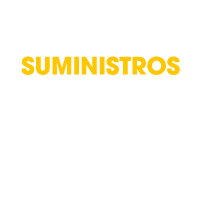Navigating Canadian Tax Obligations: Tracking Sweet Bonanza Winnings
Navigating Canadian Tax Obligations: Tracking Sweet Bonanza Winnings
Winning big on Sweet Bonanza, an online slot game that’s captivated players worldwide, is an exhilarating experience. However, for Canadian players, such winnings come with their own set of tax obligations that must be properly understood and navigated. This article will provide comprehensive guidance on how to manage and track your Sweet Bonanza winnings while complying with Canadian tax laws. The insights shared here are aimed at helping both seasoned players and newcomers smoothly handle their financial responsibilities.
Understanding Canadian Gambling Winnings Taxation
Unlike other countries, Canada has a unique approach to taxing gambling winnings. Typically, lottery and gambling winnings are not subject to income tax for casual players. This is because these winnings are generally considered windfalls, similar to receiving an unexpected gift. However, if you play Sweet Bonanza professionally or as a primary source of income, your winnings might be taxable. This distinction is crucial and requires understanding your classification as a player under Canadian tax laws.
Classifying Types of Players in Canada
Canadian tax laws differentiate between casual gamblers and professional gamblers. This classification helps determine whether you need to report your Sweet Bonanza winnings. Casual gamers play infrequently or as a leisure activity, and they generally do not incur taxation on their winnings. On the other hand, professional gamblers plan their gaming activities strategically and regularly, treating it as a business. If categorized as a professional, all winnings must be reported as income, and you may be eligible for certain deductions Sweet Bonanza 1000 demo.
Tracking Sweet Bonanza Winnings
Whether you are a casual or professional player, it is vital to maintain accurate records of your Sweet Bonanza winnings. Recording your bets and winnings helps in substantiating your activities, should the Canada Revenue Agency (CRA) inquire about your gaming practices. Here’s how you can effectively track your winnings:
- Document every gaming session, including dates, times, and amounts won or lost.
- Maintain records of all transactions related to your online gaming accounts, such as deposits and withdrawals.
- Save all correspondence from the gaming platforms regarding winnings and account statements.
- Use financial tracking software or a simple spreadsheet to organize your records.
This detailed tracking not only aids in complying with tax obligations but also supports your gaming strategy by giving you better insight into your gambling patterns.
Identifying Relevant Deductions
If classified as a professional gambler in Canada, you may be eligible to deduct certain expenses related to your gambling activities. Deductible expenses could include travel expenses to gaming events, internet costs associated with online gambling, and even subscription fees for strategy services. Properly documenting these expenses is just as important as tracking your winnings, as they can significantly affect your taxable income and any financial liabilities.
Consulting with Tax Professionals
Navigating the labyrinthine world of tax regulations can be daunting, especially when you consider the potential for involvement with Sweet Bonanza winnings. Consulting with tax professionals who have expertise in gambling and online gaming can be invaluable. These professionals stay updated on all tax law changes and can provide personalized advice to ensure compliance with Canadian taxation while maximizing your financial benefits. Collaboration with tax professionals can alleviate stress and provide insight into complex tax situations.
Conclusion
While Sweet Bonanza offers exciting opportunities to win, understanding and fulfilling Canadian tax obligations is essential for all players. Whether you enjoy playing as a casual player or treat it as your profession, informed tracking of your winnings and tax implications prevent future inconveniences. By maintaining precise records, exploring relevant tax deductions, and seeking advice from tax experts, you can confidently enjoy your gaming endeavors without worrying about legal and tax-related repercussions.
FAQs
1. Do casual players need to pay taxes on Sweet Bonanza winnings in Canada?
No, casual players typically do not need to pay taxes on their gambling winnings as they are considered windfalls.
2. How can I determine if I’m a professional gambler for Canadian tax purposes?
Factors examined might include the frequency, regularity, and strategic planning of your gaming activities. Consult a tax professional for a thorough assessment.
3. What should I do if I’m unsure about my classification as a player?
If uncertain, consult with a tax expert who can guide you based on your gaming habits and income sources.
4. Are there any deductions available for Sweet Bonanza winnings?
Yes, if you are a professional gambler, you might be eligible for deductions on certain expenses related to your gaming activities.
5. What’s the best way to keep track of my Sweet Bonanza winnings?
Document every gaming session, maintain records of all transactions, and use financial tracking software to organize and substantiate your gaming records.

